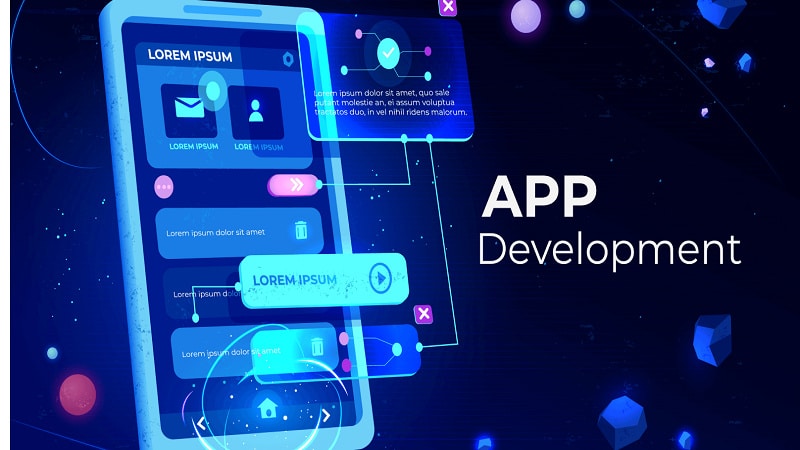
If you're new to the world of app development, you may be wondering where to start. What tools do you need? What programming languages should you learn? How do you design an app that people will want to use? Don't worry – we're here to help.
In this post, we'll outline six tips for beginners who are just starting in the world of app development. So whether you're a complete novice or you've just begun dipping your toes into the water, read on for some helpful advice.
1. Understanding Frontend and Backend Development

One of the first things you'll need to understand when you're learning to code is that there are two main types of development: frontend and backend. Frontend development refers to anything that a user will see or interact with within an app. On the other hand, mobile app backend development refers to the behind-the-scenes aspects of an app, such as databases and servers.
These two types of development are often interdependent, so it's important to have a good understanding of both. For example, a frontend developer might use HTML, CSS, and JavaScript to build the user interface for an app. Meanwhile, a backend developer would use a language like PHP to connect that interface to a database.
2. Learning the Right Programming Languages
Once you understand the basics of frontend and backend development, you'll need to choose which programming languages you want to learn. Some popular options for mobile app development include Java, Swift, and Objective-C. However, there are many other languages out there, so do some research and decide which ones are right for you.
It's also worth noting that many developers use multiple languages, so don't feel like you have to limit yourself to just one. Additionally, remember that you can always learn new languages as you go – there's no need to feel overwhelmed at the beginning.
3. Getting Familiar With the Android and iOS SDKs
If you're planning on developing for Android or iOS (or both), you'll need to get familiar with their respective SDKs (software development kits). These kits contain everything you need to build an app for each platform – including documentation, sample code, and tutorials.
When you're starting, it's best to pick one platform and master it before moving on to the other. This will help to ensure that your skills are well-rounded and that you have a solid understanding of all aspects of mobile app development.
Getting Familiar With App Store Guidelines
Whether you're using Apple's App Store or Google Play, it's important to be familiar with the submission guidelines for each platform. This will ensure that your apps are approved without any problems. In addition to reading through the guidelines, check out some other successful apps in your category so that you can see what works (and what doesn't).
The app store differs between Android and iOS, so it's important to be familiar with both. For example, Apple is typically more strict when it comes to approving apps, while Google is more lenient.
4. Choosing the Right Tools and Resources
If you're just learning how to develop apps, there are many tools and resources out there that can help you out. For starters, check out online forums like StackOverflow or Quora where seasoned developers are happy to offer advice or point you in the right direction.
Additionally, there are several IDEs (integrated development environments) that can make coding easier and more efficient. Some popular options include Android Studio, Xcode, and Visual Studio. Finally, don't forget about the wealth of online resources – from tutorials to blog posts – that can help you learn the ropes.
5. Understanding How to Design an App
One of the most important aspects of mobile app development is design. After all, no one wants to use an ugly or difficult-to-navigate app. When it comes to design, there are two main areas you'll need to focus on: user experience (UX) and user interface (UI).
UX refers to how easy an app is to use, while UI deals with aesthetics like colors and shapes. Many online resources can help you learn how to design an app, including classes or tutorials at a local college or online app development course.
6. Staying Up-to-Date With the Latest Trends
Finally, it's important to keep up with the latest trends in mobile app development. This includes new technologies, programming languages, tools, and resources. By staying up-to-date, you'll be able to take advantage of new opportunities as they arise. Additionally, you'll be better equipped to deal with any challenges that come up during the development process.
The best way to stay on top of current trends is to follow industry news sources and blogs. You can also attend conferences or meetups to network with other developers and learn about new developments firsthand.

There are many steps involved in learning how to develop apps – starting with understanding the basics of frontend and backend development, all the way up to submitting your finished product on an app store. However, by following these tips and using the right resources, you can learn everything you need to know as a mobile app developer.
Develop your business app with Netguru, a mobile app company that specializes in boosting your online business.










